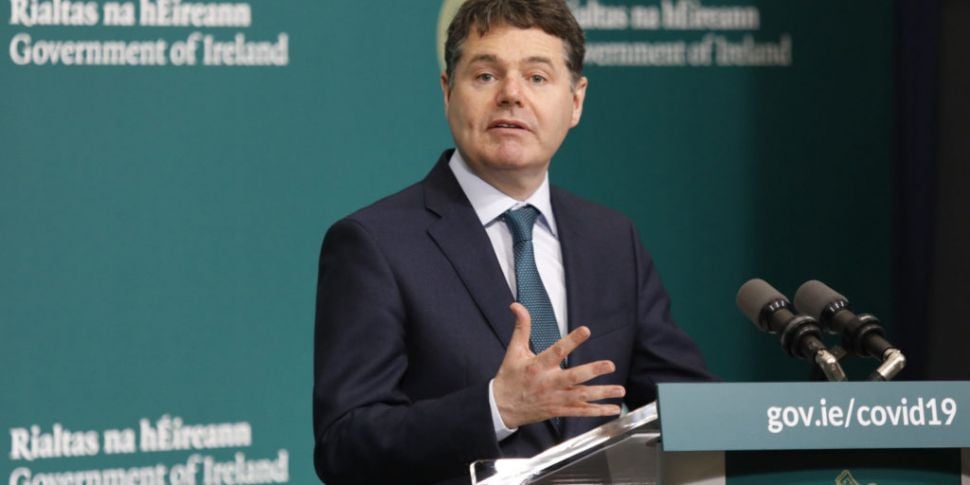
Public sector will get planned pay rise - Donohoe
by Jack QuannWorkers in the public sector will get a planned pay rise in October, Finance Minister Paschal Donohoe has said.
He told Newstalk Breakfast: "We also do have commitments that we have made to public sector unions over the last three years.
"And the very workers that we are talking about have been at the frontline - in particular in our hospitals, in our Gardaí - in dealing with some of the most difficult consequences of COVID".
"What we will need to do when a new government is formed is we'll need to sit down and look at what is the future of public pay going to be here in our country, and look at all of these issues in that context.
"The background to those kind of negotiations has changed... we now have so many hundreds of thousands of our citizens who don't have a job".
Unions have been campaigning for the increase to go ahead despite the predicted downturn due to the COVID-19 pandemic.
Under the pay deal around 330,000 public sector workers - including nurses, Gardaí and teachers, along with council staff - are due to get a 2% hike in pay.
Mr Donohoe said decisions will need to be made to accelerate economic recovery both this year and next.
It follows two publications in recent days - from the Irish Fiscal Advisory Council and the Economic and Social Research Institute - which both predict a serious economic decline due to the coronavirus pandemic.
Minister Donohoe said: "Much of what they put forward during the week I do agree agree with - it backs up a couple of points that I've been making in recent weeks.
"The first one is that both studies showed that our economy can recover, it has the ability to recover.
"And one of the reasons it does is because we did not go in to this public health crisis with the kind of economic difficulties that we have had in the past.
"We didn't have problems with the amount of credit in our economy, we didn't have problems with how we were managing expenditure or taxation.
"In the absence of those kind of difficulties, our economy has the ability therefore to recover.
"Either both in 2020 and in 2021 it is the case, Kieran, that further decisions will need to be made to accelerate the recovery of our economy".
Public sector will get planned pay rise - Donohoe


He also said that getting people back to work will be the "single largest driver" of improving the economy.
"Each of the studies from the ESRI and the Irish Fiscal Advisory Council said that there may well be a gap - and I expect that their will be - between what we tax and what we spend.
"That is in a number of year's time, and in the interim what we have to do is get people back to work - and by doing that we make that gap smaller".
"In the future we will need to do new things with our public health service to prevent us from the kind of difficulty we've had with COVID happening again.
"We may well have to change, for example, how we organise childcare, what we do with our schools.
"And they are the kind of issues that we will better understand once we're successful in containing this disease - and we are making progress with that.
"And in a number of year's time they will then be the kind of issues we need to look at how we're going to pay for".
"So there will be decisions that will be made in the future: but before we get to any of that, our first priority is to make the decisions in 2020 and 2021 on top of what we have already done to get our citizens back to work.
"And that's the single biggest thing that we can do to get our country to a better place and to manage our public finances".
Earlier this week, the Irish Fiscal Advisory Council said the debt ratio here will be 'almost at historic highs' after the coronavirus crisis.
It suggests government debt could return to near-record levels - ranging from 114% to 160% in 2021, up from 99% in 2019.
It also said that it could take two to 3.5 years to return to pre-crisis levels of activity.
But by contrast, the Irish economy took 11 years to recover after the financial crisis.
And the Economic and Social Research Institute (ESRI) has warned that the economy is facing its largest recession in history.
Its summer quarterly economic commentary examined three potential scenarios: baseline, severe and benign.
The baseline scenario is considered the most likely, and follows the Government roadmap for re-opening through to August.
In the severe scenario, a second wave of the COVID-19 outbreak hits with strict lockdown assumed later this year.
While the benign scenario assumes successful suppression of the disease , and sees a return to economic normality in the fourth quarter of the year.